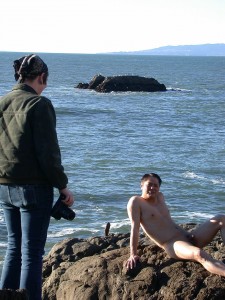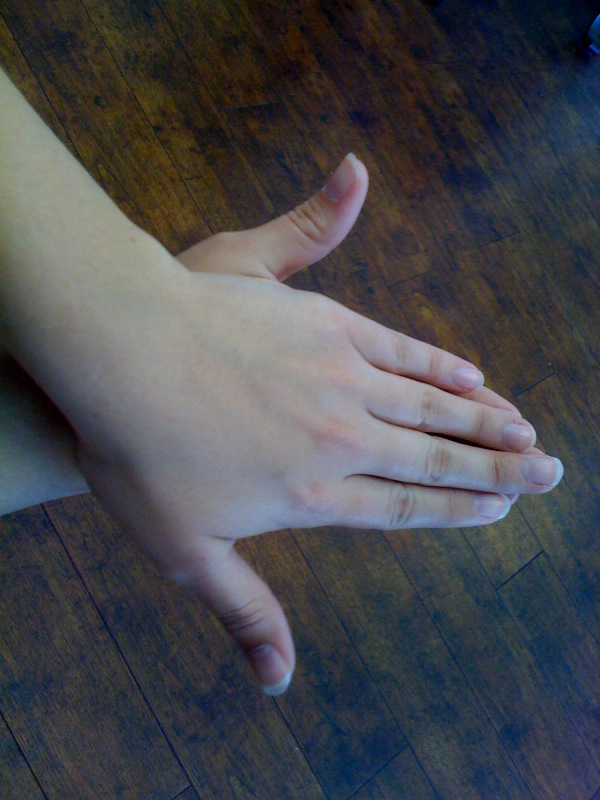aNewDomain — Once upon a time, men knew how to treat women.
Hold the door. Get out of the car, go all the way around, open her door for her. Call her honey. Carry her stuff for her. When she’s out and seems to be alone, ask if she’s with someone.
These are all microaggressions: well-meaning statements or behaviors that imply bias or are insulting or demeaning to the recipient.
In the late eighties and early nineties, women started to demand to be treated differently. She can open her own doors and feels infantilized when the man rushes around the car to get her door. She can carry her own stuff. And she can go out alone without needing to go home with a man. She doesn’t need a man next to her for it to be inappropriate or unwelcome for a man to hit on her.
This created a great deal of confusion. Men did not know how to treat women any more. Some of this feeling persists, especially among those of us who are a little older, born back in those heady days of casual misogyny. Of knowing.
And this confusion is further compounded somewhat by the fact that some women are still old-fashioned, too. They see chivalry as something lost that should have been retained, as courtesy rather than diminution, as something the man does because the woman is worth it.
An awkward person’s wisdom
Naiveté is a sign of enlightenment. That might not seem intuitive; the awkward person is not viewed in American culture as the wise person. But the wise person has cultured naiveté by culturing awe. Awe is the condition of being moved, of being open and willing to being moved. Not just struck by experience, but willing to be shifted off balance by experience. Awe is a reverence for what is, without preconception regarding what should be.
And when it comes to women, we are awkward now where men were smooth and cultured before.
Women’s rights remain an ongoing fight, a struggle. But it is undeniable we are in a whole different place today than we were in, say 1980 – let alone 1950. We encountered a period of awkwardness because what we had said and done in the past no longer got the same responses. Sometimes holding open a door was viewed as a kind of contempt and sometimes as a kind of well-mannered culture.
Not knowing is the key to civil rights. Not knowing is the key to human relations.
Which of 50 Facebook genders are you?
Facebook has 50+ gender categories. Others sites have more. Whatever you call someone who is non cis-gendered, non hetero-normative, that descriptor will quickly be made obsolete and replaced with a new term. Folks don’t like to be labeled. In A Civil Action, John Travolta rejects a settlement offer because the company is willing to pay it. The only acceptable settlement would be one the company is unwilling to pay. The only acceptable label for off-label genders is one that outsiders are unaware of.
One you are labeled, people think they understand you. But they do not. They know nothing of your internal experience, your struggle of being different in a same-only culture. The ever-shifting landscape of gender descriptors serves as speed-bumps. They slow down judgment and thus dismissal. They keep us from knowing too much about one another – forcing us to ask.
Naiveté again.
If cis-gender people use the label, it means they know something about the other. They are labeled, shut away into a box, marginalized and ignored. Safe. If one always offers a new label, someone has to ask, “what does that mean?” And then the person has a chance to explain, to be encountered as they are, not as someone else thinks they are.
This is really awkward. And it’s right.
Slow down. Ask questions. Don’t assume.
The person in the wheelchair might object to being treated as disabled. Might be angry if you go out of your way to hold a door for them. Consider asking before helping, because your help might be infantilizing. We’re here, too. Encountering a person of disability is awkward because we are so full of assumptions and preconceptions but aware that things are changing, that our information is outdated, that we don’t really know how to proceed.
Naiveté, awkwardness and enlightenment
 I’m not against knowing or social smoothness. It’s just that the things we have “known” about women, people of disability, people of non-Christian faith, people of color – the things we’ve known haven’t been very helpful or accurate. Better to not know. Better to be curious, open, willing to learn.
I’m not against knowing or social smoothness. It’s just that the things we have “known” about women, people of disability, people of non-Christian faith, people of color – the things we’ve known haven’t been very helpful or accurate. Better to not know. Better to be curious, open, willing to learn.
I’m generally a pessimist on race relations. The fight is a long and difficult one. There’s a lot of resistance, a lot of history, a great deal of inertia. Guilt and shame at stake. But today I have just a little bit of hope.
When it comes to how to treat people of color, white folks in America are increasingly confused. Oh, racism isn’t dead or even very sick. It’s gone underground, into denial and microaggressions more than posses and racial epithets. But it’s not dead. Still, we’re confused now. We are with race relations just where we were in the early 90’s. We know what we have been doing might not work anymore. We keep doing it maybe, out of inertia, and some of us try to adapt to the times without really understanding why – and a few folks, mostly young people, get it. They lead the way really, genuinely, not caring about the color of peoples’ skin.
This is different from race blindness. They see the color and it just isn’t that important to young folks these days. Older folks who go race-blind do so to cover discomfort – in fact, the more a person denies racism the more racist they appear to be. But younger people are growing up in an environment in which the old stereotypes – the things we once “knew” about “others” – no longer hold.
Naivete. Awkwardness. Enlightenment.
Just the tiniest glimmer of hope.
Giving up knowing.
Being open to experience.
Awe and reverence.
Virginia Satir once said every person is wonderful. I disagree – some people are clearly not wonderful. But all people are wondrous. They are worth awe and reverence, of being met where they are as they are, of being encountered absent, to the extent possible, of the veils of preconception.
For aNewDomain, with love, this is Jason Dias.
Turtle gesture cover image: by Jessica Mullen [CC by 2.0], via Wikimedia Commons
Above image of female photographer giggling awkwardly while photographing a nude man at San Francisco’s Baker Beach: Wikimedia Commons













